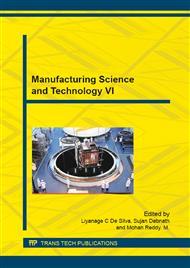p.1039
p.1045
p.1052
p.1059
p.1067
p.1073
p.1078
p.1082
p.1087
An Affine Parameter Dependent Controller of an Helicopter for Various Forward Velocity Conditions
Abstract:
In this paper, we address the design of a controller that accomplishes stabilization and reference tracking at various flight conditions by using linear helicopter models. The suggested controller is in the form of an H-infinity gain-scheduler, and is used for stabilization and reference tracking for the 4 axis (heave, pitch, roll and yaw) autopilot. Based on the linear models given for the Puma helicopter, an approximate affine parameter dependent model has been built. Then, a linear parameter dependent controller is synthesized which stabilizes the affine parameter dependent helicopter model. By doing so, a single controller achieves stabilization and reference tracking of a family of linear models by scheduling the controller gains based on the online measurement of the scheduling parameter, which is the forward velocity. Moreover, the affine parameter dependent controller is fitted into the linear models. It is observed that this single parameter dependent controller successfully stabilizes a family of linear helicopter model at different forward flight conditions.
Info:
Periodical:
Pages:
1067-1072
Citation:
Online since:
September 2015
Authors:
Price:
Сopyright:
© 2015 Trans Tech Publications Ltd. All Rights Reserved
Share:
Citation:


